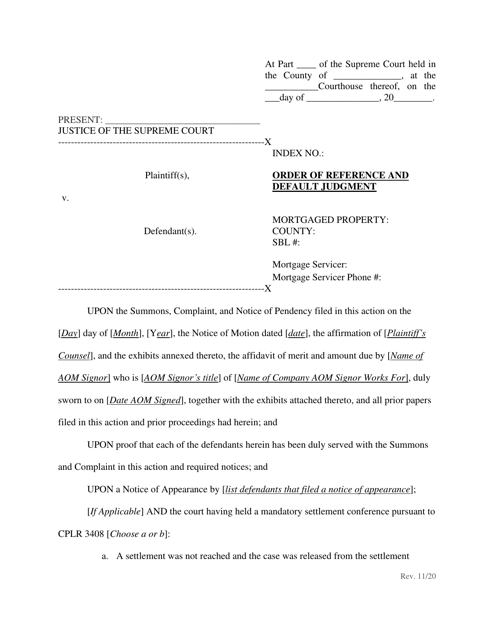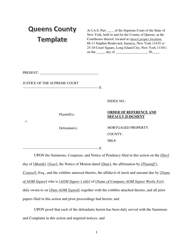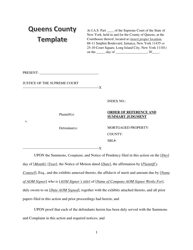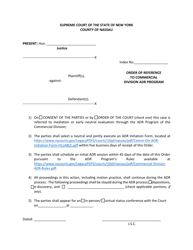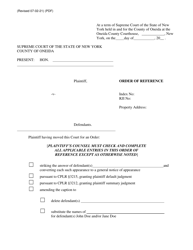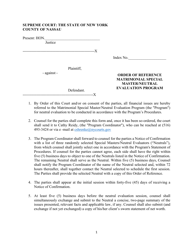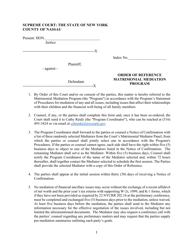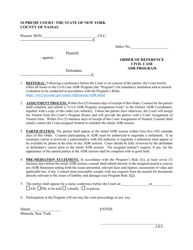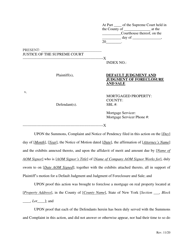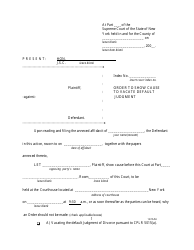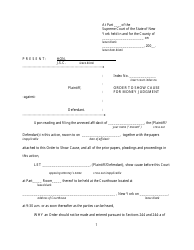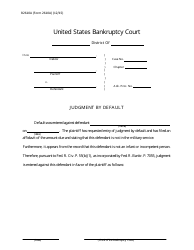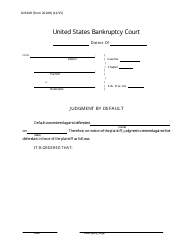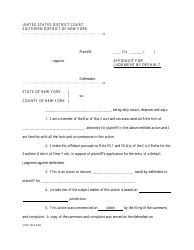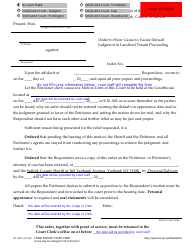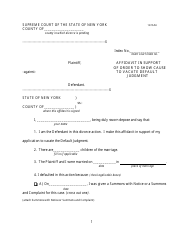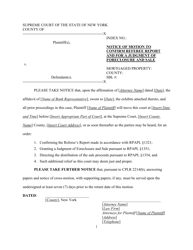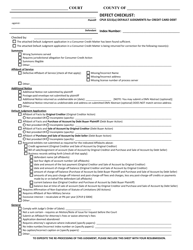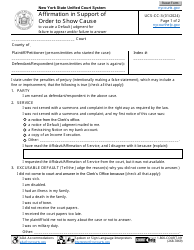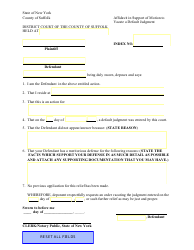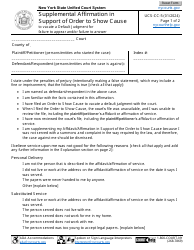Order of Reference and Default Judgment - New York
Order of Reference and Default Judgment is a legal document that was released by the New York Supreme Court - a government authority operating within New York.
FAQ
Q: What is an order of reference?
A: An order of reference is a court order that refers a case to a referee, who is appointed to hear and make recommendations on certain issues in the case.
Q: When is an order of reference issued?
A: An order of reference is usually issued when complex issues or matters requiring expertise need to be determined, and the court wants to rely on the knowledge and skills of a referee rather than making the decisions itself.
Q: What is a default judgment?
A: A default judgment is a judgment that is obtained against a party who fails to appear or respond in court within the specified time period.
Q: When can a default judgment be entered?
A: A default judgment can be entered if the party fails to timely answer or otherwise respond to a legal complaint or fails to appear in court when required to do so.
Q: What is the effect of a default judgment?
A: A default judgment typically results in a judgment being entered in favor of the party who requested it, based on the allegations and claims made in the complaint.
Q: Can a default judgment be set aside?
A: In certain circumstances, a party may be able to seek to have a default judgment set aside, such as if they can show good cause for their failure to respond or appear in court.
Form Details:
- Released on November 1, 2020;
- The latest edition currently provided by the New York Supreme Court;
- Ready to use and print;
- Easy to customize;
- Compatible with most PDF-viewing applications;
- Fill out the form in our online filing application.
Download a printable version of the form by clicking the link below or browse more documents and templates provided by the New York Supreme Court.
